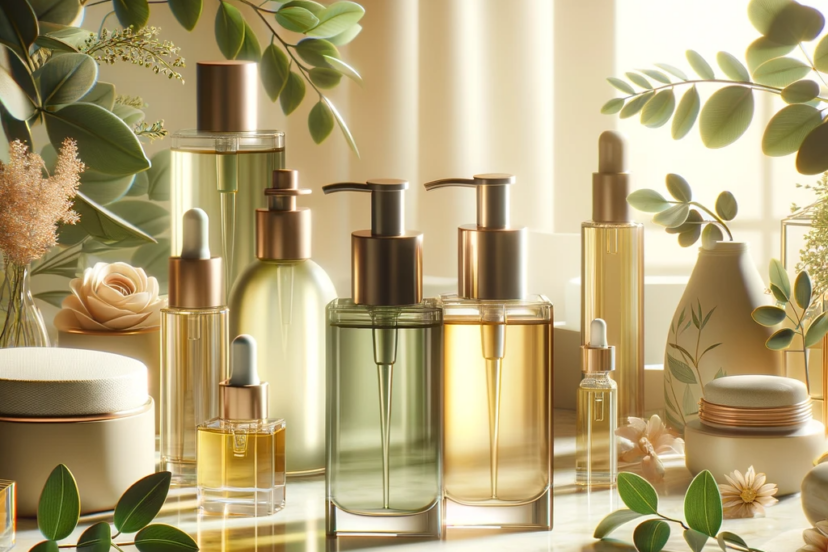Skincare Routine Face Oil
Introduction to Skincare Routine Face Oil
Skincare is not just a routine; it’s a form of self-care and love. Among the myriad of products available, face oils have emerged as a game-changer in many skincare regimes. But what exactly are these skincare routine face oil, and why are they so beneficial?
Importance of Skincare
Skincare is more than just a beauty regimen; it’s an essential aspect of personal health and well-being. Proper skincare routine face oil help in maintaining healthy skin, the body’s largest organ, which acts as a barrier against harmful external elements. Here are some key reasons why skincare is crucial:
- Protects Against Environmental Damage: Pollution, sun exposure, and extreme weather conditions can damage the skin. Skincare products, especially those with SPF, antioxidants, and anti-inflammatory properties, can protect the skin from these environmental aggressors.
- Prevents Skin Problems: Regular and appropriate skincare can help prevent a variety of skin issues, from acne to more severe conditions like eczema and psoriasis. Early prevention is often easier than correcting skin issues later.
- Slows Down Aging Signs: While aging is natural, a good skincare routine face oil can slow down the appearance of wrinkles, fine lines, and age spots. Products containing retinoids, peptides, and antioxidants are particularly beneficial in this regard.
- Boosts Self-Confidence: Healthy, glowing skin can significantly boost one’s self-esteem and confidence. When your skin looks good, it often translates into feeling good about yourself.
- Promotes Skin Hydration: Proper hydration is essential for maintaining skin elasticity and preventing dryness or oiliness. A balanced skincare routine face oil ensures that the skin is adequately hydrated.
What are Face Oils?
Face oils are concentrated skincare products that provide intense nourishment and hydration to the skin. Derived from natural plant sources, these oils are rich in essential nutrients, fatty acids, and antioxidants. Here’s an overview of what face oils are and their role in skincare:
- Concentrated Moisture: Face oils are primarily used for moisturizing. They deliver a high concentration of active ingredients directly to the skin and are particularly effective in locking in moisture.
- Types of Oils: There is a wide range of face oils available, each with its own unique properties and benefits. Common oils include jojoba, rosehip, argan, and marula, among others.
- Suitable for Various Skin Types: Contrary to popular belief, face oils can be beneficial for all skin types, including oily and acne-prone skin. The key is to choose the right oil for your specific skin needs.
- Versatile Use: Face oils can be used alone, mixed with other skincare products, or as part of a layered skincare regimen. They are often used after water-based products and before heavier creams.
- Benefits Beyond Hydration: While hydration is a primary benefit, face oils also offer other advantages like reducing the appearance of fine lines, improving skin texture, balancing oil production, and providing a natural glow.
Choosing the Right Face Oil
To reap the most benefits, it’s crucial to choose a face oil that aligns with your skin type. Oily skin might shy away from oils, but the right kind can actually help regulate sebum production. For dry skin, a deeply hydrating oil can be a lifesaver, especially in harsh climates. And if you have combination skin, balancing is key – you’ll want an oil that hydrates without causing congestion.
Identifying Your Skin Type
Before selecting a face oil, it’s crucial to identify your skin type. Whether your skin is oily, dry, combination, sensitive, or normal, each type has unique needs that certain oils are better equipped to meet. For instance, dry skin will benefit from oils rich in oleic acid, while oily skin might prefer linoleic acid-rich oils.
Oily Skin Considerations
People with oily skin might fear that oils will exacerbate their skin issues, but the right oil can actually help balance sebum production and reduce oiliness. Lightweight and non-comedogenic oils like grapeseed or hemp seed oil can be beneficial.
Dry Skin Solutions
Dry skin can greatly benefit from the nourishing and hydrating properties of face oils. Oils rich in fatty acids, such as almond oil or shea butter oil, can provide deep hydration and help to repair the skin’s moisture barrier.
Combination Skin Tips
For combination skin, balancing is key. Oils like argan oil, which are not too heavy yet hydrating, can be ideal. They provide moisture without clogging pores in the oily T-zone.
Key Ingredients to Look For
Ingredients are the heart of any skincare product. Look for oils rich in vitamins, antioxidants, and essential fatty acids. Commonly beneficial ingredients include jojoba oil, rosehip oil, and argan oil, each known for their unique properties in nourishing and revitalizing the skin.
Incorporating Face Oil into Your Routine
How and when you apply face oil can make a significant difference. In the morning, a light oil can prep your skin for the day ahead, providing a smooth base for makeup. In the evening, a more intensive oil can work wonders overnight. It’s also important to balance face oil with other products in your routine – it should complement, not conflict.
Morning Skincare Steps
In the morning, after cleansing and toning, apply a few drops of a lightweight oil. It can help protect the skin from environmental stressors and provide a smooth base for makeup or SPF.
Evening Rituals
At night, your skin is in repair mode, making it the perfect time to use a more nourishing oil. After cleansing, apply an oil that suits your skin’s needs. Oils with calming ingredients like lavender can also aid in relaxation and promote better sleep.
Balancing with Other Skincare Products
Ensure that your face oil is compatible with other products in your routine. Generally, oil should be applied after water-based products and potentially before heavier creams, depending on its consistency and your skin’s needs.
Benefits of Regular Use of Face Oils
With regular use, face oils can transform your skin. They provide intense hydration, making your skin look plump and radiant. The anti-aging properties of many oils can help reduce the appearance of fine lines and wrinkles. Over time, you might notice an improvement in your skin’s texture and tone, giving you a more youthful and vibrant complexion.
Hydration and Nourishment
Face oils excel in providing intense hydration. They are particularly effective in locking in moisture, leading to a plumper, more hydrated complexion. This is especially beneficial in dry climates or during colder months when the skin tends to lose moisture more rapidly.
Anti-Aging Effects
Rich in antioxidants and essential fatty acids, many face oils offer anti-aging benefits. They can help in minimizing the appearance of fine lines and wrinkles, promoting a more youthful and radiant skin appearance. Oils like rosehip, known for their high Vitamin C content, are particularly effective in this regard.
Improving Skin Texture and Tone
Regular use of face oils can lead to an improved skin texture and more even tone. They can help in reducing the appearance of scars, hyperpigmentation, and other blemishes, resulting in a smoother and more uniform skin complexion.
Common Myths and Misconceptions
There are many myths surrounding face oils, such as they always cause breakouts or make your skin oily. However, when used correctly and chosen based on your skin type, face oils can actually balance your skin’s natural oils and improve its overall health.
Debunking Face Oil Myths
One common myth is that face oils are only for dry skin and will exacerbate oiliness in other skin types. However, the truth is that with the right oil, even oily or combination skin can benefit greatly. Another misconception is that face oils can replace sunscreen, which is not accurate. While some oils may have natural SPF properties, they are not a substitute for dedicated sun protection.
DIY Face Oil Recipes
If you’re into DIY skincare, making your own face oil can be a rewarding experience. For dry skin, a blend of almond oil and lavender can be soothing and hydrating. For oily skin, a mix of grapeseed oil and a few drops of tea tree oil can provide balance and antibacterial benefits.
Recipe for Dry Skin
For dry skin, a nourishing blend can be made by combining almond oil (rich in vitamins) with a few drops of lavender essential oil (for its soothing properties). This blend can provide deep moisturization and calm skin irritations.
Recipe for Oily Skin
For oily skin, a lightweight, non-comedogenic oil like grapeseed can be mixed with tea tree essential oil, known for its antibacterial properties. This blend can help regulate oil production and combat acne without over-drying the skin.
Tips for Maximizing Benefits
Applying face oil in the right way is key. Always apply it to clean, slightly damp skin. This helps the oil penetrate more effectively. Don’t forget to consider your lifestyle as well – a healthy diet and adequate hydration can amplify the effects of your skincare products.
Best Practices in Application
Applying face oil correctly is key. It should be applied to clean, slightly damp skin to enhance absorption. Also, warming the oil between your hands before application can help it penetrate the skin more effectively.
Lifestyle Considerations
Your overall lifestyle can impact the effectiveness of your skincare routine. A healthy diet rich in antioxidants, ample hydration, and adequate sleep all contribute to better skin health and can amplify the benefits of face oils.
Personal Experience and Recommendations
I’ve been incorporating skincare routine face oil for years now, and the difference is remarkable. My skin feels more hydrated, supple, and radiant. One of my all-time favorite oils is rosehip oil – it’s lightweight yet deeply nourishing.
My Journey with Face Oils
My personal journey with face oils has been a transformative and enlightening experience. Initially skeptical, I was amazed at the changes in my skin’s texture and health once I started incorporating them into my routine. My journey began with a simple bottle of jojoba oil, known for its versatility and compatibility with almost all skin types. Its lightweight nature was a perfect introduction to the world of face oils. Over time, as I experimented with different oils, I began to understand the unique benefits each one offered. From the deep hydration of sweet almond oil to the rejuvenating properties of rosehip oil, my exploration into face oils has been a journey of discovering what works best for my skin’s changing needs.
Favorite Products and Brands
Over the years, I’ve had the opportunity to try various face oils and brands, each with its unique qualities. Here are some that have stood out and earned a permanent place in my skincare arsenal:
- Organic Jojoba Oil by Cliganic: This 100% pure, organic jojoba oil is a versatile staple. It’s incredibly similar to the skin’s natural oils, making it suitable for balancing both dry and oily skin types.
- Rosehip Seed Oil by Trilogy: Trilogy’s rosehip oil is renowned for its high quality. Rich in essential fatty acids and antioxidants, it’s fantastic for tackling fine lines and uneven skin tone.
- 100% Pure Argan Oil by Josie Maran: Known for its purity and ethical sourcing, Josie Maran’s argan oil is a luxurious treat for the skin. It’s especially beneficial for those with dry or mature skin, providing deep hydration and a radiant glow.
- Marula Oil by Drunk Elephant: This oil is a game-changer for many. Lightweight yet hydrating, Drunk Elephant’s marula oil is suitable for all skin types and is particularly effective in boosting skin hydration and resilience.
- Grapeseed Oil by Now Solutions: An excellent option for oily or acne-prone skin, this light, non-greasy oil helps in regulating oil production and maintaining a clear complexion.
Each of these brands and products brings something unique to the table. Whether you’re looking for something to tackle dryness, aging, or maintain balance in oily skin, these face oils are among the best I’ve tried and have become a core part of my skincare routine.
Conclusion and Final Thoughts On Skincare Routine Face Oil
In conclusion, face oils can be a transformative addition to your skincare routine. Understanding your skin type, choosing the right ingredients, and correctly applying the oils are key to reaping their full benefits. Whether you’re looking to hydrate, nourish, or combat signs of aging, there’s a face oil out there for you. Remember, skincare is deeply personal, and what works for one might not work for another. It’s all about finding the right balance and products that suit your individual needs.
FAQs
Can face oil replace my moisturizer?
While skincare routine face oil provide hydration and can enhance the effectiveness of your skincare routine, they don’t replace moisturizers. Moisturizers have a different composition and often contain water-based ingredients that hydrate the skin. Face oils, on the other hand, are great for sealing in moisture and adding an extra layer of nourishment.
How often should I use skincare routine face oil?
The frequency of face oil application depends on your skin type and the specific oil you’re using. Generally, for most skin types, using face oil once or twice a day is beneficial. If you have oily or acne-prone skin, you might want to start with a lighter application once a day and observe how your skin reacts.
Can I use face oil if I have acne-prone skin?
Yes, you can use face oil if you have acne-prone skin, but it’s crucial to choose the right oil. Non-comedogenic oils like jojoba or rosehip are beneficial for acne-prone skin as they don’t clog pores and can help regulate oil production.
Does face oil have an expiration date?
Yes, like all skincare products, face oils do have an expiration date. Most face oils should be used within 6 to 12 months of opening. Always check the label for the specific shelf life of the product and store it in a cool, dark place to preserve its quality.
Can I use face oil under makeup?
Absolutely! Face oil can be used under makeup, but it’s important to give it time to absorb into the skin. Apply the face oil, wait a few minutes for it to penetrate, and then proceed with your makeup routine. This can help create a smooth, hydrated base for makeup application.
By addressing these FAQs, the article concludes by reinforcing the importance and versatility of face oils in skincare, providing readers with practical and tailored advice for incorporating these products into their daily routines.



